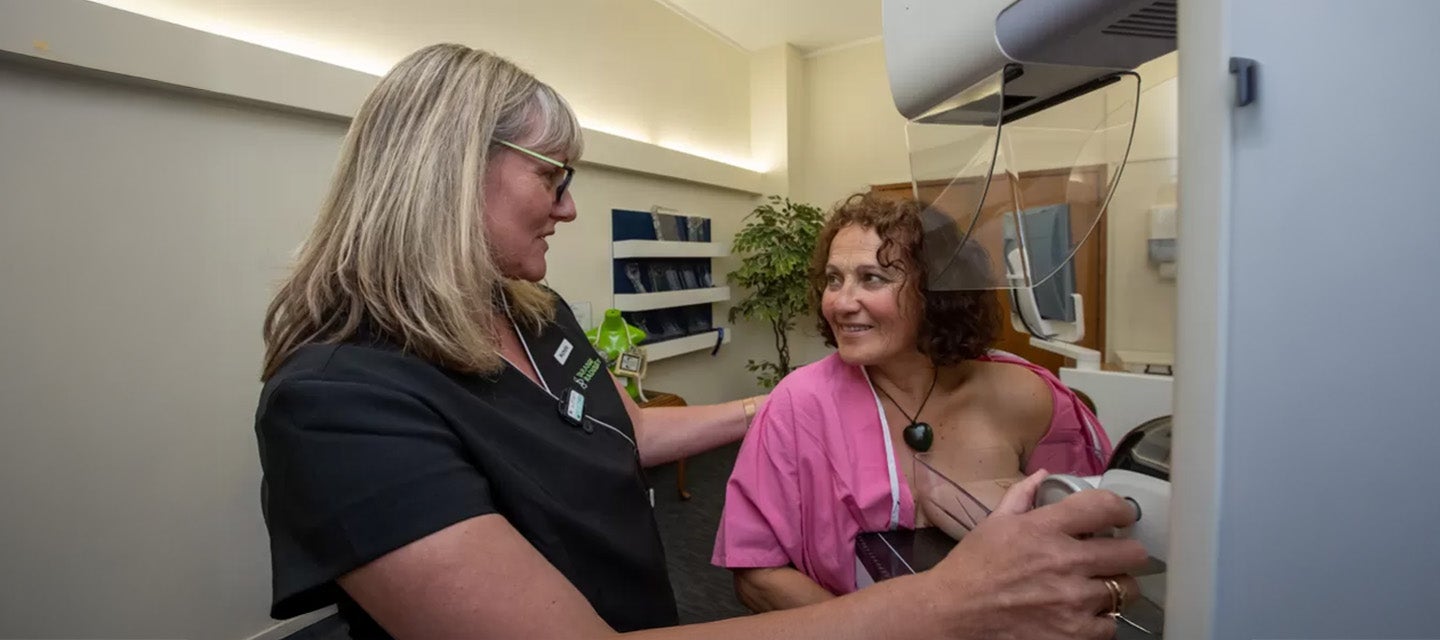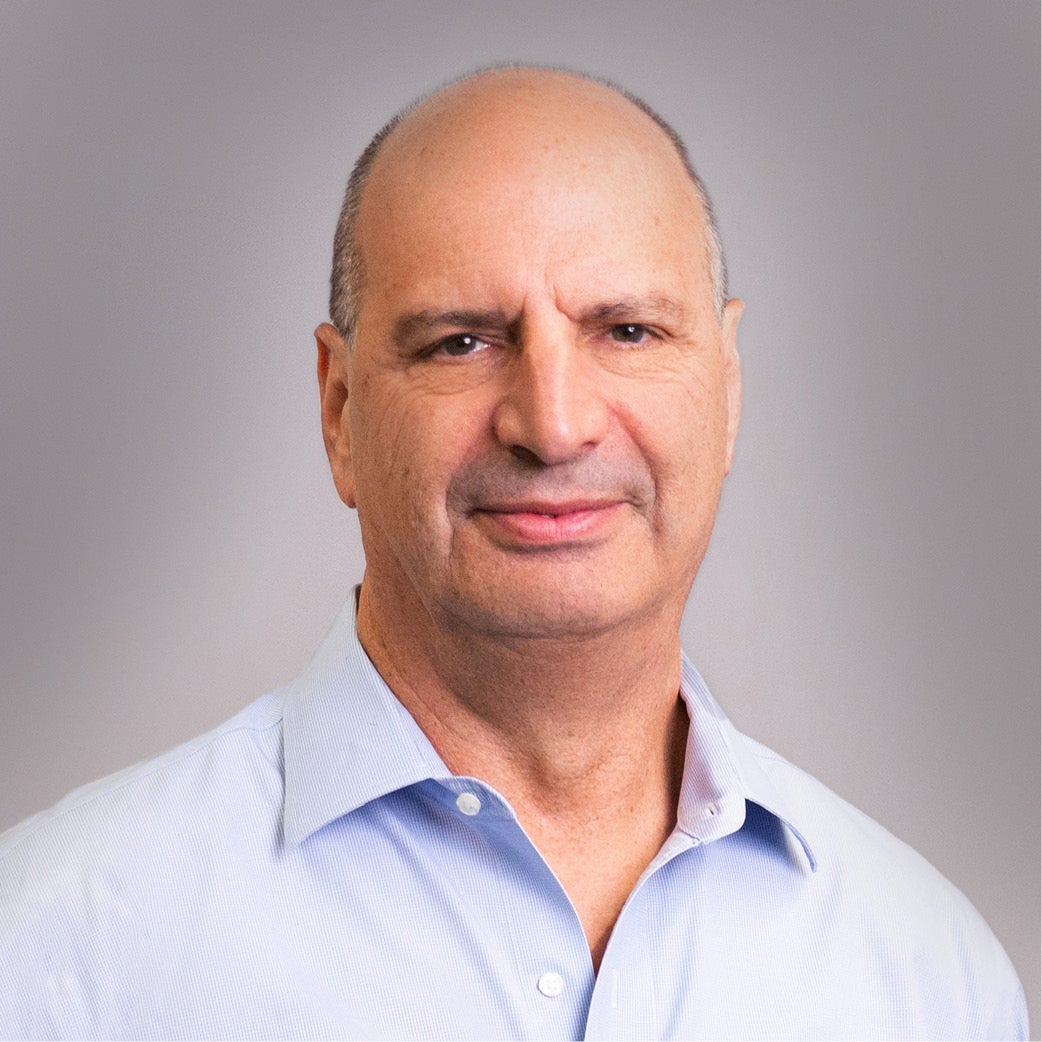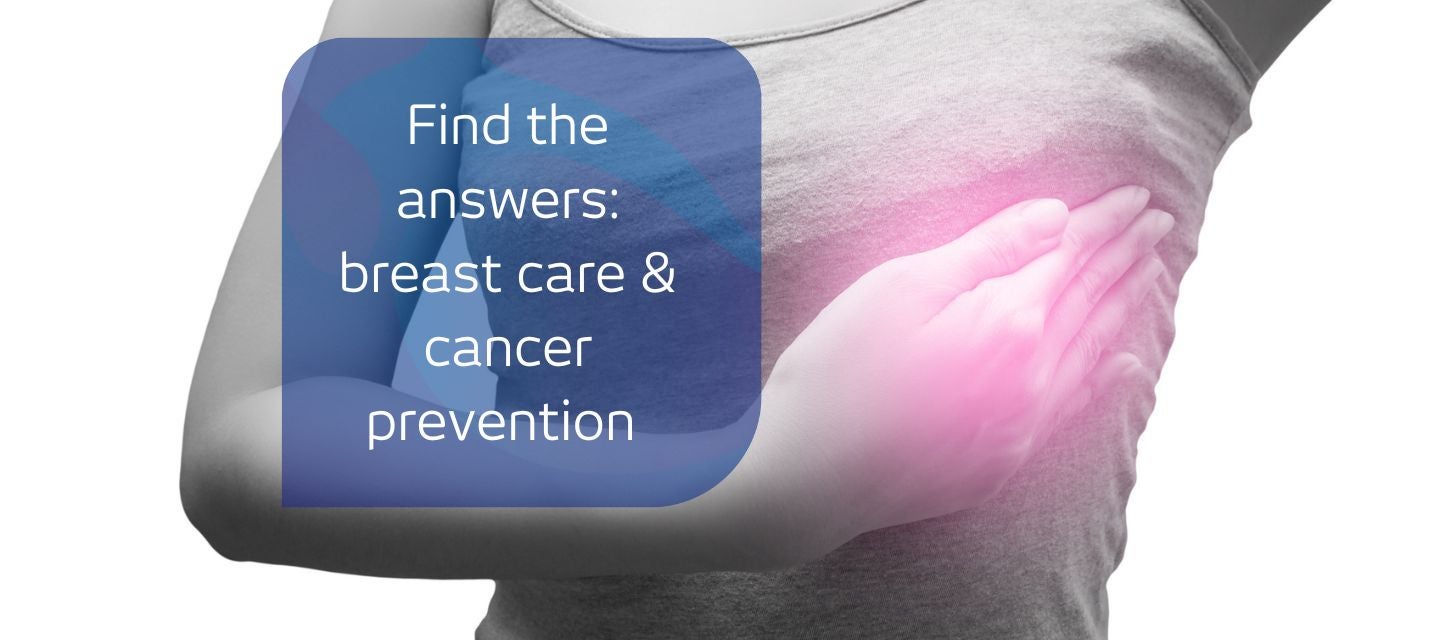

Mammography
Mammography

What is mammography?
A diagnostic mammogram is a type of x-ray test for your breasts. This test is done when there are unusual signs or symptoms in one or both of your breasts, such as a lump, tenderness, fluid coming out of your nipple, or changes in your skin. The mammogram helps to confirm if these changes are benign, which means they are not cancerous and you don't need any treatment, or if these changes suggest breast cancer, in which case more tests and treatment would be needed.
Breast density & mammography
Breast density plays an important role in cancer detection - because denser breast tissue can increase the risk of breast cancer. Assessing a woman's breast density is crucial for providing personalised care, allowing healthcare providers to customise screening and prevention strategies according to individual needs.
I-MED Radiology uses special Volpara Health software, during diagnostic mammography examinations, to objectively measure breast density using AI based technology. This allows us to tailor the breast examination to the individual and perform the most appropriate follow up imaging tests.
Breast Tomosynthesis (3D Mammography)
I-MED Radiology is also proud to offer breast tomosynthesis* at select clinics. Breast tomosynthesis (also known as 3D mammography) is an advancement on the traditional mammogram which allows our expert radiologists to quickly and very precisely examine breast tissue in thin slices, typically one millimetre in thickness. Breast tomosynthesis improves the detection of invasive breast cancers by 40% and significantly reduces the number of ‘false positive’ findings, decreasing the need for additional mammographic views.
*Available in most I-MED Radiology sites that perform diagnostic mammography.
How much will my examination cost?
Fees for radiology tests can vary and depend on a number of factors. Please make an enquiry with us by phone or email to get a quote for the service you require. ACC co-payments may apply.
We accept all radiology referral forms.
Waikato
Phone: 0800 426 723
Email: Booking.Waikato@i-med.co.nz
Rotorua
Phone: 0800 466 5642
Email: Booking.Rotorua@i-med.co.nz
Bay of Plenty
Phone: 07 544 5993
Email: Booking.bop@i-med.co.nz
Taranaki
Phone: 06 759 4317
Email: Booking.Taranaki@i-med.co.nz
How do I prepare for a mammogram? keyboard_arrow_down
Don’t wear any deodorant, perfume, lotion or talcum powder on the day of your appointment because these substances may show up as shadows on your mammogram. Wear a two-piece outfit so you only need to undress from the waist up. Bring any previous mammograms with you to your appointment so they can be compared with the diagnostic mammogram.
If you have menstrual or monthly periods it is best to have your diagnostic mammogram one week after the start of your period. The breasts will not be as tender at this time, and you will not feel as much discomfort or pain for the few seconds when the breasts are pressed between two plates to take the x-ray images.
What happens during a mammogram? keyboard_arrow_down
You are asked to undress from the waist up. When you are comfortable, our trained staff will position one of your breasts between two plastic plates. Compression of the breast for a few seconds is necessary to improve image quality. It also uses less x-ray radiation because of the reduced thickness of the breast in this position.
This slight pressure placed on your breast during the procedure is not at all dangerous. It cannot damage your breast and it does not cause breast cancer or make it worse.
A standard mammogram consists of two views of each breast. Occasionally, extra views are needed to show an area of breast tissue more clearly. This does not necessarily mean anything is wrong. Do not be alarmed if we take these additional views.
In 2013 we upgraded to a full digital equipment providing higher quality images with lower dose.
How long does mammography take? keyboard_arrow_down
The mammography and the compression are performed by a specially trained radiographer. While the compression may be uncomfortable and perhaps painful it lasts only seconds. Without compression, the x-rays would be blurry which makes it hard to see any abnormality. Compression also reduces the amount of radiation required for the mammogram.
Standard diagnostic mammography takes between 10-15 minutes. Sometimes extra views are performed which take longer. If you have breast implants, the mammography will take longer (approximately 30 minutes) because it takes more time to make sure clear images are taken.
Who conducts the examination? keyboard_arrow_down
The x-rays are taken by a radiographer who has received specialist training in the field of mammography. Mammograms are then read and interpreted by a radiologist (a specialist doctor with training in breast imaging), who will provide your referring doctor with a report of the examination.
We are the only private provider for Mammography services in the Waikato region.
What are the risks of a mammogram? keyboard_arrow_down
Like all x-rays, having a mammogram exposes you to some radiation, but only a small amount. Such risk is far outweighed by the benefit of early detection of breast cancer, significantly reducing the death rate from the disease.
The risk of developing cancer from a mammogram is no greater than developing cancer from exposure to the natural background radiation accumulated from the normal environment in 1 year.
If you have breast implants there is an extremely small risk of damage to the implant.
It is important to note that mammography does not detect all breast cancers, even when the cancer has caused a lump that can be felt. In such a circumstance, a normal mammogram does not mean that the lump can be ignored. In this situation, other diagnostic tests such as breast ultrasound and needle biopsy may be necessary.
How do I get my results? keyboard_arrow_down
All mammograms are read (interpreted) independently by two separate Specialists, and the results compared. Sometimes even a third opinion is obtained before the final report is sent to your GP or Specialist. The report outlines our findings and recommendations for any further action.
Follow up with your referring doctor for an explanation of the report.
Are there any after effects of a mammogram? keyboard_arrow_down
After effects are rare, but you may experience breast tenderness, bruising, or splitting of the skin if your skin is fragile.
Related procedures

This information has been reviewed & approved by Dr Ronald Shnier (I-MED Chief Medical Officer).
Related articles


Your complete guide to breast care
Related procedures

This information has been reviewed & approved by Dr Ronald Shnier (I-MED Chief Medical Officer).
How much will my examination cost?
Fees for radiology tests can vary and depend on a number of factors. Please make an enquiry with us by phone or email to get a quote for the service you require. ACC co-payments may apply.
We accept all radiology referral forms.
Waikato
Phone: 0800 426 723
Email: Booking.Waikato@i-med.co.nz
Rotorua
Phone: 0800 466 5642
Email: Booking.Rotorua@i-med.co.nz
Bay of Plenty
Phone: 07 544 5993
Email: Booking.bop@i-med.co.nz
Taranaki
Phone: 06 759 4317
Email: Booking.Taranaki@i-med.co.nz
Related articles

Understanding breast density

